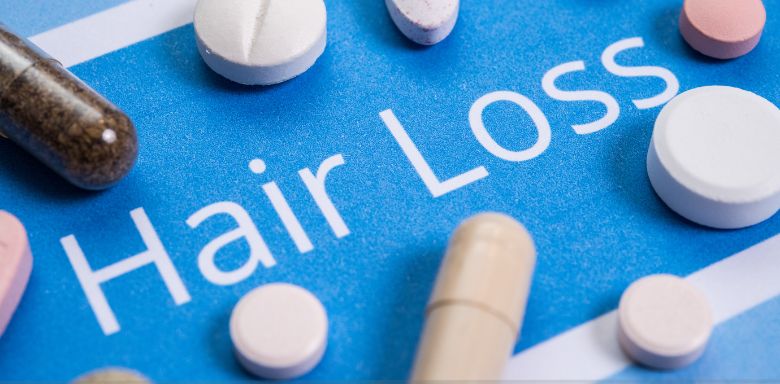Nourishing Your Locks
Hair loss can be a major issue for many people as hairstyles and good-looking hair play a big part in how people view each other. Patchy or bald patches may make people feel insecure about themselves, so some may look for hair growth products.
That is why this article will discuss some hair growth products and vitamins as well as the causes of hair loss in many people.
What Can Cause Hair Loss
People typically lose 50 to 100 strands of hair a day. This is not noticeable and is completely normal. However, when you spot a receding hairline or patches, this means you have an issue with hair loss.
Dealing with hair loss can be caused by multiple factors and some people may have skin conditions or genetics that explain it.
1. Biotin Deficiency
Biotin is a vitamin B nutrient that is natural in many types of foods and is also available as a supplement. When someone battles with biotin deficiency, they will lose all hair around their body over time, as well as red rashes around their mouth and eyes.
While having any vitamin deficiency is uncommon, someone battling biotin deficiency is rare. It starts gradually and may take a while to notice.
2. Hormonal Issues
Male-pattern and female-pattern baldness can be caused by hormonal issues. This can happen due to hormonal changes and medical conditions that alter the person's hormonal balance.
Medical conditions such as thyroid problems, menopause, pregnancy and other conditions will cause alopecia areata. This immune system issue can cause patchy hair loss, scalp infections and other problems.
Some people may say that male pattern baldness is related to higher levels of the testosterone hormone, but that is not the cause. Male-pattern baldness is more hereditary than an imbalance of testosterone levels.
3. Stress and Depression
Hair loss can also be linked to stressful situations and depression, as the emotional shock will cause a hormonal change in the body. The good thing about this type of hair loss is that it is only temporary and your hair may grow back.
Although chronic stress has been linked to hair loss, the reasons why people lose their hair from stress are not well understood, as they can vary between people.
One known reason people lose hair from stress is that the stress activates the sympathetic nervous system, which depletes the melanocyte stem cells. This can lead to graying hair and hair loss.
4. Hairstyles
Wearing tight hairstyles can cause hair loss and balding due to hair follicles being pulled. Hairstyles such as extremely tight buns, cornrows and braids cause the hair follicles to be pulled for an extensive time, leading to traction alopecia.
Traction alopecia is often seen at the hairline as it slowly pulls away. If you spot it early enough, you can reverse the damage by weaning yourself down more often.
5. Family History
Family genetics also plays a role in hair loss, as it can be hereditary. If your family members have battled with hair loss, you may also battle hair loss, such as male-pattern or female-pattern baldness
There is no known cure to stop hereditary hair loss, but you can slow down the process with treatments and supplements.
What Supplements Can Help With Hairloss
This section of the article will examine some of the best ways to combat hair loss. Before you take any supplements, we suggest you see a medical professional to determine the best treatment for your hair loss.
1. Nutritional Supplements
You may need to treat the underlying cause of your hair loss before you can fix it. Nutritional deficiencies are some of the leading reasons you may lose your hair.
Below are some supplements you can take to counter the issue.
- Finasteride: This drug is a prescription type, meaning a doctor must prescribe it. It is used for males to counter male-pattern balding but does carry a severe warning.
- Minoxidil: This drug is similar to Finasteride but is used to treat female pattern balding. It is an over-the-counter drug, but it does carry some side effects.
- Baricitinib: This supplement can help modulate the immune system, which can help treat alopecia areata.
2. Vitamins
Certain vitamins can help promote people’s natural hair growth and health. Here are some examples of supplements you can take to help your hair’s health and promote growth.
- Vitamin A: This vitamin promotes the secretion of sebum, which can help hair break down. However, taking too much Vitamin A can also lead to hair loss. Therefore, you should follow the instructions and listen to your dermatologist before taking it.
- Vitamin D: Although vitamin D may not help cure hair loss, a 2019 study showed that vitamin D deficiency was evident in alopecia areata patients. So, taking a vitamin D supplement may be wise to help with hair loss.
- Vitamin B: B12 and B7 (Biotin) are common solutions to help combat hair loss and are often in many hair growth products.
3. Multi-Ingredient Formulas
Here are some multi-ingredient formulas you can try. However, you should be aware that some of these formulas may not work for everyone.
- Nutrafol: This oral supplement can help with hair loss in men and women. Its ingredients are botanically sourced, which is good for vegans.
- Viviscal: This hair growth supplement can help people who have lost hair due to stress, age and other environmental factors.
Hopefully, with all the information on why you may be dealing with hair loss and how to deal with it, you can now keep the hair on your head as long as possible without too much hassle.
